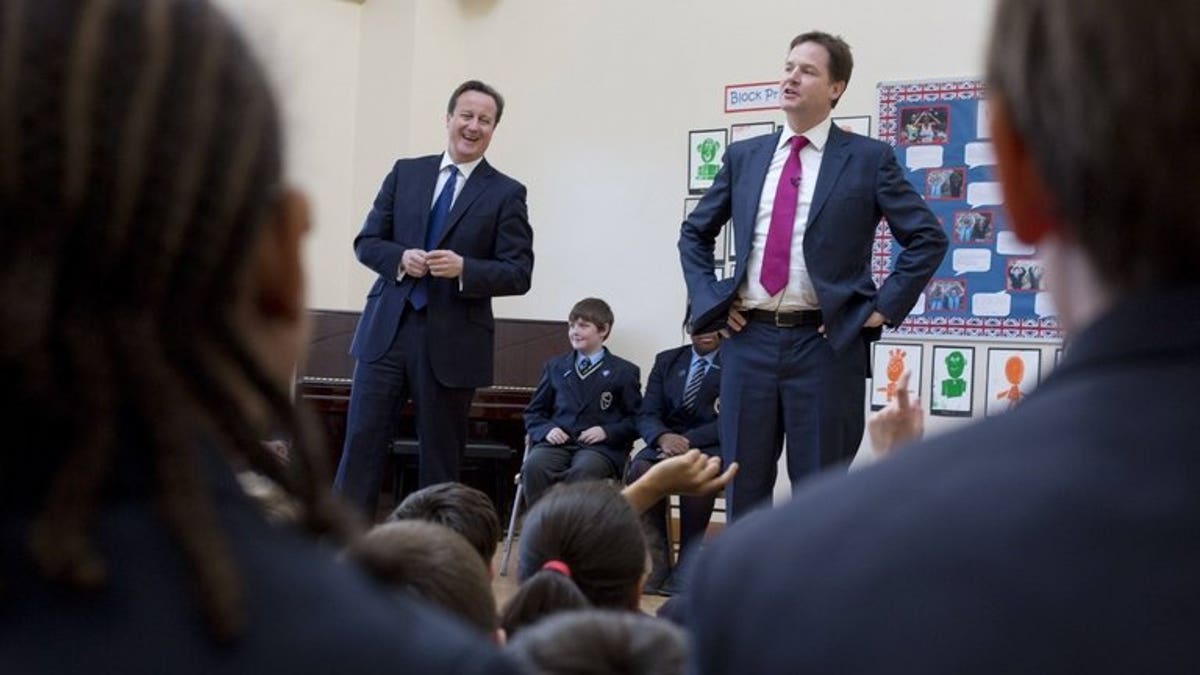
Prime Minister David Cameron (L) and Deputy PM Nick Clegg (R) visit a Brixton primary school, December 4, 2012. Primary school pupils could be ranked against their peers on a national scale under plans being championed by Clegg. (POOL/AFP/File)
LONDON (AFP) – Primary school pupils could be ranked against their peers on a national scale under government plans being unveiled Wednesday.
The proposals would mean 11-year-olds in the last year of primary school are ranked in 10-percent bands based on their results in national curriculum SATS tests, with parents told how they compare at a national level.
Deputy Prime Minister Nick Clegg said the move would help pupils prepare for secondary school and "raise the bar" in education, but some teaching unions warned they could damage children's self esteem.
"For children to achieve their potential we need to raise the bar -- in terms of tests, pass marks and minimum standards," he added.
"Every primary school should strive to make its pupils ready for secondary school by the time they leave.
"All the evidence shows that if you start behind, you stay behind."
The government is launching a consultation on the plans with a view to introducing the changes in 2016.
Ministers also want to scrap national curriculum levels and introduce a new scoring system for primary schools, as well as a tougher new "baseline assessment" used to measure pupils' progress.
Additionally, the pupil premium for disadvantaged children will increase from the current level of ??900 to ??1,300 per eligible pupil in 2014/15, announced Clegg, whose Liberal Democrat party pushed for the original scheme.
Brian Lightman, general secretary of the Association of School and College Leaders (ASCL) acknowledged that there were "problems" with existing primary school tests, which he said must be fairer and more accurate.
But he said: "I am not convinced that ranking 11-year-olds will help to raise standards. There are better ways of making it clear to parents and children what they should be achieving at the end of primary school.
"I worry what will happen to those children who have tried hard yet are told that they are in one of the bottom bands. Children at that age mature differently and their confidence can be easily damaged."
Russell Hobby, general secretary of the National Association of Head Teachers (NAHT) welcomed the additional pupil premium funding but was sceptical about the reforms on testing.
"The government has a fondness for testing young children in the belief that the tests create reliable measures of performance. They don't," he said.
"And, by relying only on what can be measured, they risk missing what matters. There is far more to being 'secondary ready' than a score on an hour's test."
